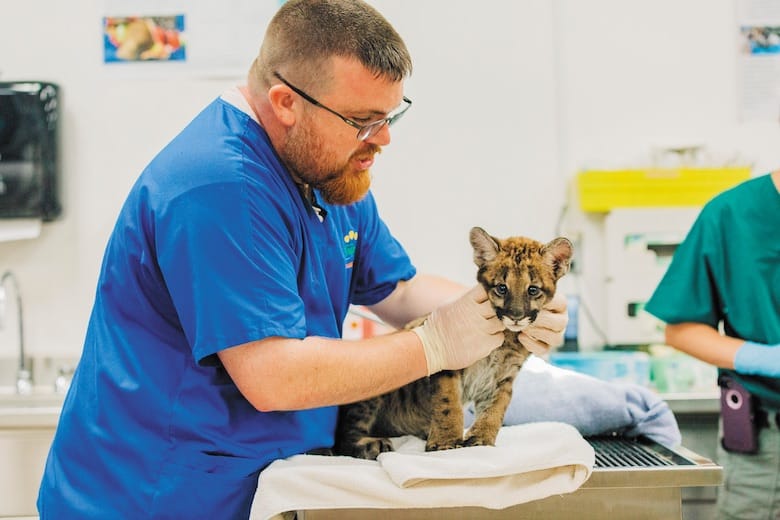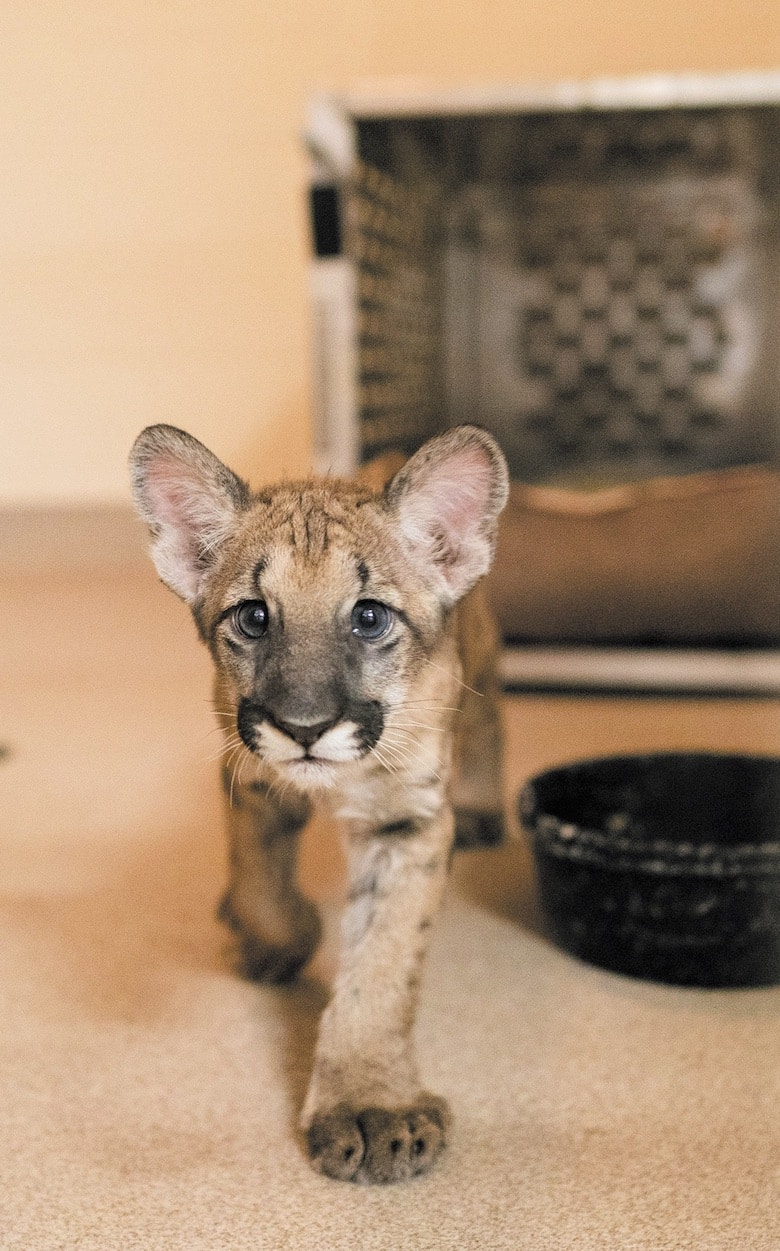The Florida panther, once flourishing throughout the Southeast, was adopted in 1982 as Florida’s state animal. It is now one of the most endangered big cats on the planet.
In July 2019, Florida Fish and Wildlife Conservation Commission (FWC) trail cameras caught sight of a radio-collared female cat struggling to walk. She had two 2-week-old male kittens and was unable to care for them. The kittens, named Pepper and Cypress, were unlikely to survive by themselves in the wild, so FWC enlisted the help of veterinarians at BluePearl Pet Hospital and Zoo Tampa to oversee the kittens’ round-the-clock care.
Neonatal at the time, the kittens “needed to be bottle-fed every two hours and kept warm and groomed — basically everything that their mother typically would have done for them had we not had to humanely euthanize her due to her debilitating state from the neurological damage,” says Ashley Ayoob, DVM, one of the BluePearl veterinarians.

Photo: Courtesy Sandra Torres, Zoo Tampa
Cute and furry survivors
Dr. Cynthia Stringfield, Senior VP of Animal Health at Zoo Tampa, reports that Pepper and Cypress have grown by leaps and bounds and are doing exceptionally well. “They’ve lost the spots kittens are born with and have been given a clean bill of health. We don’t anticipate them contracting the disorder and are pleased with their progress,” she says. “As they’ve grown, unique personalities have developed. Cypress is the lover, hence his nickname ‘Mr. Purry Pants,’ and Pepper is more energetic, already climbing his first tree.”

Photo: Courtesy Sandra Torres, Zoo Tampa
Important ambassadors
Because of their extensive contact with humans, they can’t be released back into the wild and have been relocated from Zoo Tampa to their permanent home at the White Oak Conservation Center in Yulee, Florida, to serve as ambassadors for their species. They live in a large, naturalistic enclosure with very little interaction with people in order to be studied and to maintain their wildness and natural instincts.
There are no recommendations to use the kittens for breeding purposes, but the FWC and ZooTampa hope their story will help educate the public about the plight of this endangered species and how they can help the Florida panther gain back in population. Panthers are currently protected under the Endangered Species Act, and one of the milestones required to delist the panther include having three separate populations of 240 animals.
South Florida’s population is nearly large enough to make the first of the three groups, but the emergence of feline leukomyelopathy is concerning.
The mysterious neurological illness that debilitated the kittens’ mom has been given a name, according to FWC Commission spokesperson Carli Segelson: feline leukomyelopathy.
Biologists can use this name while studying additional panthers and bobcats exhibiting similar symptoms, with several of them having to be euthanized.
There is currently no known treatment for the condition, and its possible cause could be anything from a congenital degenerative neurologic disease to toxin exposure, nutritional deficiencies or infectious disease. With Florida panthers likely only numbered in a few dozen as recently as the 1990s, FWC biologists say there are between 120 and 230 panthers living in Florida now, so feline leukomyelopathy is concerning.
Michelle Kerr, a public relations specialist for the FWC says, “The FWC takes this situation seriously and is taking steps to determine the cause of this disorder. They have deployed additional cameras to capture more videos of affected animals, and FWC biologists, veterinarians and a wide array of disease specialists from around the world are working together to examine the evidence and to identify possible causes.”
Pepper and Cypress have already caused a wide outcry of public support, educating people on how to help panther research and conservation. Follow their adventures at whiteoakwildlife.org.
Top photograph: Courtesy Sandra Torres, Zoo Tampa
Read Next: Get to Know the Bombay: A Mini Panther With a Charming Nature
